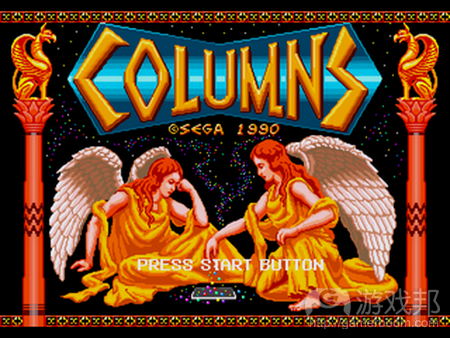解析《宝石迷阵》成瘾性背后的成因
作者:Erin Hoffman
游戏设计的一大职业危害是需要不断体验游戏,不但要预测市场发展动态,还要探索游戏设计法则(游戏邦注:也就是感动玩家的普遍机制)。最近有关《宝石迷阵闪电战》的议论声风起云涌,所以我们今天也来一探究竟。
《宝石迷阵闪电战》和《宝石迷阵》的机制相仿,游戏沿用《魔法宝石》血统,玩家能够展开快速体验。游戏绑定众多社交功能(如排行榜和成就机制),使体验以轻松但有趣的多人模式呈现。游戏因此能够迅速在Facebook传播,把握绝佳时机。
这类基于简单有趣机制的游戏是游戏设计的核心,但同时游戏也不可避免地开始融入“沉浸式”游戏机制理念。因为这个机制具有成瘾性。
虽然将“成瘾性”用在游戏开发中似乎有些过于轻率,但我认为没有设计师不是怀着忐忑心理对待这个词语的。高管们喜欢听到“成瘾性机制”。游戏设计师们认为这个理念颇引人入胜,但同时具有一定危险性,虽然我打从心里认为游戏不会也无法伤害玩家。没有人(游戏邦注:不论是高管还是游戏设计师,抑或是行为心理学家)能够提供明确量化测试,说明“沉浸性”在行为或行动中究竟意味着什么。
从设计分析视角来看,《宝石迷阵》的沉浸元素简单但深刻:
1. 游戏通俗易懂;玩家双击便能进入游戏。
2. 游戏呈现具有清晰解决方案的清晰问题。
3. 行动结果将会产生关联性后果。
4. 这些关联性后果包含随机/不可预知/间歇奖励。
游戏还融入其他子元素,如生动的反馈(引人入胜的特效和音效)、持久背景环境(促进产生刺激因素:“我戳戳这个,看看会发生什么情况”),这些都是重要元素。
游戏简单性降低了失败机率和重返速度。问题和解决方案的清晰性能够激发我们的认知循环,而又无需融入棘手元素(游戏邦注:如灰色地带判决、道德标准、社会反响或其他我们在现实生活中遇到的复杂问题)。奖励系统和关联后果促使我们能够从简单、清晰的活动中收获变幻莫测但却令人称心如意的结果。
所以我想这就是游戏具有沉浸性的原因所在。玩这款游戏让我的认知引擎受到刺激,仿佛又回到5岁时期。我知道我想要一直玩下去。当游戏获得我的共鸣后,道德观念开始活跃,“其他玩家从游戏中收获什么,随之带来的责任感是什么?”
我稍有顿悟,领会其中十分重要的一点。我发现我之所以放弃持续体验《宝石迷阵》是因为我希望开展更加复杂的活动,这是我本该执行的任务。
沉浸性不是玩家体验什么,而是由于沉浸行为的替换玩家不体验什么。
即便体验时间或消费额度大同小异,某个玩家的沉浸行为定义之所以不适用其他玩家是因为沉浸性涉及的不是行为,而是个人。
这就是为什么仅仅应对沉浸性是不够的。这就是为什么(游戏邦注:虽然有些活动明显比其他活动更吸引人)所有活动都可能成瘾。沉浸行为揭示行为背后的焦虑以及缺乏完成必要任务的欲望。
我之前提出的某个问题涉及“本应该”任务。这是个存在性和社交性问题:作为个人,当同辈期望同我们的个人愿望背道而驰时,我们有多大义务满足他们的期望?朝七晚十一玩家相比从事其蓝领工作而言,充当游戏公会首领是否收获更多快乐,如果是这样,这是否是个错误心理,谁能够判断其中正误呢?
这些都是令人棘手的深层次人类问题。但游戏通常就是一面镜子。它不会创造那些我们从未有过的行为;它向我们真实反映残酷现实生活背后蕴藏的东西。
解决方式不是放弃游戏,而是直视其中带来的启示。
真正富有同情心的成瘾性顾问知道这点:解决成瘾行为问题(这个问题唯有当事人自己决定改变方能解决)不仅仅是停止此类活动。这意味玩家希望从中寻找现实生活中缺少的元素,玩家追求更加简单的活动,这能够带给他们暂时的欢乐,但无法使他们在整个人生中保持快乐(游戏邦注:准确来说,只有问题个人才能够寻找和明确自己的相对快乐状态。家人或其他人都无法帮他们定义。据我所知,有些沮丧之人最大的不快乐是家人无法认同或接受促使他们快乐的元素)。
我承认以上某些观点带有个人色彩。我有时也觉得自己深陷某些游戏当中。一种情况是,我假装生病没去学校,在家玩一整天游戏。我知道这没什么说服力(但我是个十足的乖学生,逃课对我来说是件大事)。这和游戏本身没有关系,而是我已经16岁,我的生活一团糟,游戏能够带给我能量,提供我某些简单问题的简单解决方案,这能够帮助我缓解现实生活中的复杂问题。从这点来看,完全体现不出成瘾性,我还能够反思过去时光,然后说,事情一团糟,我完全知道我为什么选择玩游戏,而不去应对现实问题。我停止体验游戏并不是因为游戏发生改变,而是处境使然,我不再需要摆脱我的现实生活。直至今日,游戏带给我的仍旧是舒适而非危险感觉。
我们,不论是作为游戏消费者还是设计师,之所以需要明白这点是因为很多解决方案都是放弃体验游戏,而非理解其中成因。后者显然困难得多。但我们显然需要以缜密、深刻的方式了解我们自己和刺激因素,不是仅出于个人利益,而是解决生存面临的最大问题:我们为何而活,我们该如何活。我们应该明白是什么促使我们成为人类,其中包括获悉工具和艺术品(游戏邦注:这是我们为反映摸索中的自己而创造的)的价值所在。这些艺术品的魅力在于其普遍性,所以你无需有刻意琢磨方能弄清《宝石迷阵》的吸引力所在。不论承认与否,这就是我们人类的本性,而这极其深奥。除放弃游戏之外我应有更好的解决办法,胜过给予理解和同情,这些过度频繁体验游戏的玩家通常不得不向专业人士寻求帮助,但这些人根本就不了解游戏的含义,了解他们的真实价值,甚至连那些沉迷其中的玩家也一无所知。
游戏邦注:原文发布于2009年9月16日,文章叙述以当时为背景。(本文为游戏邦/gamerboom.com编译,如需转载请联系:游戏邦)
Life, Addictive Game Mechanics, And The Truth Hiding In Bejeweled
by Erin Hoffman
One of the occupational hazards of being a game designer is an obligation to play up-and-coming games, both to stay ahead of where the market is moving and to dig for signs of the One True Game Design, aka universal mechanics that move people. Lately there’s been a lot of buzz around Bejeweled Blitz, so I dug in for a sample today.
Blitz takes the familiar Bejeweled mechanic, itself going back along the Columns lineage in games, and makes you play it fast. They bolt on a bunch of social features — leaderboards and achievements — making it massively multiplayer in a lightweight but fun way. No surprise it’s sweeping through facebook, and a good time to be doing so.
Games like this, based on such simple and compelling mechanics, are on the one hand at the heart of game design and on the other inevitably raise the concept of “addictive” game mechanics. Because, man, that mechanic is addictive.
“Addictive” is a word we use in game development perhaps too lightly, though I would argue that there is no game designer who doesn’t treat that term with a huge dollop of trepidation. Executives love to hear the phrase “addictive gameplay”. Game designers, speaking for myself and those I know (whom I’m sure will correct me if they disagree), find the concept intriguing but simultaneously dangerous, even if we believe deep down that games don’t — even can’t — hurt people. And no one, from executives to game designers to behavioral psychologists, can give you an absolutely clear and quantifiable test for what “addictive” means when applied purely to a behavior or action. (As opposed to, say, a chemical. Chemical addiction is an equine of differing saturation.)
From a design analysis standpoint, Bejeweled’s addictive elements are simple but profound:
1. The game is simple to understand; two clicks and you’re in.
2. The game presents a clear problem with a clear solution (make rows of 3+ jewels).
3. The results of action frequently create cascading consequences.
4. These cascading consequences have an element of randomness / unpredictability / intermittent reward.
There are further sub-elements, such as the vivid feedback (attractive effects and sound), persistent environment (it hits on this “let me poke this thing and see what happens” basic human drive) — but those are the topline elements.
The simplicity of the game reduces the consequence of failure and the speed of re-entry. The clarity of the problem and solution fires our cognitive circuits without requiring the engagement of messier things like grey area judgment, ethics, social repercussion, or any of the myriad other complex elements we have to deal with in the reality of our daily lives. The reward system and its cascading consequences ensure that we achieve a variable but deeply satisfying result from our simple, clear action.
So I get why it’s addictive. I play it, I feel the cognitive engine revv up, the little five year old in the back of my brain goes “Ooooh.” I understand that I want to keep playing, and when this reaction fires in me my ethical brain also kicks in and goes, “hmm, what are other people experiencing when they play this, and what responsibility ensues?”
Then I had a little epiphany, one of those simple ones that feels very important. I realized that what pulls me away from playing Bejeweled continuously is that I actually want to perform the complex behavior I’m supposed to be performing instead (in this case, moving onto another task at work).
Addiction is not about what you DO, but what you DON’T DO because of the replacement of the addictive behavior.
The reason why what defines addiction for one person may not define addiction for another person, even given quantified equal stretches of time action or consumption, is because addiction is not about the action, but about the individual person.
This is why merely resisting addiction of any kind is not enough. This is why — although some activities are more broadly compelling than others — virtually any activity can become an addiction. What addictive behavior does is reveal underlying anxiety (and often depression, which itself is nebulous) and lack of desire to perform the things we’re “supposed to” be doing.
One of the questions that I’ve asked before has to do with that “supposed to”. It is a deeply existential and social question: to what extent are we obligated as individual human beings to fulfill the expectations of our peers, when they run counter to our individual desires? Is the 7-11 gamer more happy in his successful guildleader existence than in his blue-collar job, and if so, is it wrong, and who is allowed to make that judgment for him?
These are deep human questions that are difficult to answer. But the game, as always, is a mirror. It does not create in us behaviors that we would never have otherwise; it reflects back to us what is lurking beneath the grind of our everyday existence.
The solution is not to break the mirror, but to resist the urge to look away from what it shows us.
Truly compassionate addiction counselors understand this: that resolving an addictive behavior (which cannot be done, by the way, until the person who has the behavior acknowledges it and decides that THEY want to change their behavior) is more than causing the behavior itself to cease. It means addressing the lack of meaning in a person’s life that leads them to pursue a simpler activity that may make them temporarily happy but not happy in the grand scheme of their life. (And the critical definition there is that only the individual in question can seek and define their state of relative happiness. It cannot be determined for them, not by family or anyone else. I’ve known people who think of themselves as depressed when really their only major source of unhappiness is that their families don’t like or accept what makes them happy.)
Some of this has a personal note, I should acknowledge. I’ve had a couple of moments wherein I thought I was addicted to one game or another. In one case, I stayed home sick from school to play a game all day. Lame, I know. (I was otherwise a pretty good student; the notion of skipping class was a big deal.) It had nothing to do with the game itself, but the fact that I was sixteen and (as I perceived it) my life sucked, and the game presented me with power and simple solutions to simple problems that were a relief from the complex crappy things that existed in my reality. From here, thoroughly not addicted, I can look back on that time in my life and say, you know, things sucked, and I completely understand why I would have rather played that game than deal with reality. When I stopped playing it, it wasn’t because the game changed, but because my circumstances did, and I no longer felt the need to disengage from meat life. And to this day the game evokes feelings of comfort, not danger, when I play it.
The reason why we, as game consumers and game creators, need to understand this, is because for many the solution is to break the mirror rather than understanding it. The latter is certainly more difficult. But we need to understand ourselves and our drives in as deep and thoughtful a way as possible not merely for our own individual benefit, but to solve the greatest problems that existence presents: the questions of why we live, and how we live. We need to understand what makes us human, and part of that is recognizing the value in the tools and art that we create to reflect ourselves back to us in the quest for that understanding. And what is so fascinating about these pieces of art is their universality — that you don’t need to consciously think about any of this to feel why Bejeweled pulls you. Our human nature is there whether we acknowledge it or not, and the rabbit hole runs deep and dark. There is a greater cause beyond mirror-breaking, more good than we can do through understanding and compassion, in fields where those who do play games more often than they should most often have to deal with professionals who have no understanding of what those games mean, or their genuine value, even to the addicted, after addiction. (Source:gamasutra)
上一篇:美国前副总统称游戏已成为大众媒介










































 闽公网安备35020302001549号
闽公网安备35020302001549号